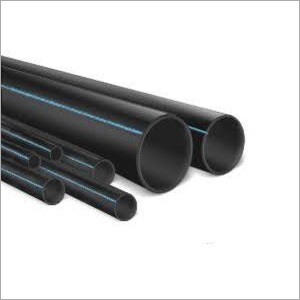Pipe Manufacturing Midland TX: Behind the Scenes
Wiki Article
Understanding the Secret Advantages of HDPE Pipe for Water and Wastewater Administration
Using HDPE pipe in water and wastewater monitoring offers countless benefits that warrant factor to consider. Its exceptional sturdiness and long life-span make it a preferred choice for lots of projects. In addition, the product's resistance to rust and chemical damage enhances its reliability in different environments. The advantages prolong past simply durability and resistance. hdpe pipe suppliers Midland TX. Exploring its cost-effectiveness and environmental influence exposes a lot more compelling factors for its prevalent fostering in modern-day infrastructureExceptional Durability and Long Life

HDPE pipe attracts attention for its exceptional toughness and longevity, making it a favored option in water management systems. Created from high-density polyethylene, these pipes can hold up against substantial pressure and stress, ensuring trustworthy efficiency gradually. Their durable nature allows them to sustain extreme ecological problems, including temperature level variations and soil motions, which can create various other materials to stop working.
The lifespan of HDPE pipes usually surpasses half a century, providing an economical service for towns and sectors alike. Additionally, the material's lightweight residential or commercial properties streamline installation, minimizing labor prices and timeframes. This durability reduces the requirement for constant repair services or replacements, better boosting its financial charm.
In water monitoring applications, the integrity of HDPE pipelines means fewer disturbances and improved solution continuity, making them indispensable to lasting facilities development. The combination of durability and durability strengthens HDPE's function as a foundation in effective water monitoring solutions.

Resistance to Deterioration and Chemical Damage
While lots of products yield to corrosion and chemical damages with time, HDPE pipes display amazing resistance, making them ideal for different water management applications. This strength stems from the molecular structure of high-density polyethylene, which is naturally non-reactive and does not corrode like steels or degrade from direct exposure to severe chemicals. Consequently, HDPE is highly reliable in settings with hostile substances, such as wastewater systems that might consist of acids, bases, and organic solvents.
In addition, HDPE pipelines can endure ecological aspects such as dirt level of acidity and saline conditions, better enhancing their suitability for varied applications (Pipe Manufacturing Midland TX). Their capability to maintain structural stability gradually reduces the threat of leakages and failings, which is vital in ensuring the security and dependability of water circulation and wastewater monitoring systems. Subsequently, the resistance to rust and chemical damages markedly contributes to the general effectiveness and durability of HDPE piping remedies
Cost-Effectiveness and Financial Advantages
When thinking about the monetary ramifications of water monitoring systems, the cost-effectiveness of HDPE pipelines becomes obvious. These pipelines offer reduced setup and maintenance prices compared to conventional products click here like steel or concrete. Their light-weight nature simplifies transportation and installment, leading to lowered labor expenditures. Additionally, HDPE pipes show a lengthy life-span, usually going beyond half a century, which equates to less substitutes and long-term financial savings.Additionally, the resistance of HDPE to deterioration and chemical damage minimizes the demand for costly repair services and substitutes. The pipelines likewise support reliable water circulation, lowering power expenses related to pumping systems. By alleviating leakages and water loss, HDPE pipelines contribute to considerable financial benefits for communities and markets alike. Overall, the first investment in HDPE piping can yield significant financial returns over the lifespan of the water monitoring system, making it a prudent option for lasting framework advancement.
Environmental Sustainability and Minimized Impact

Versatility and Flexibility in Installation
As a result of their unique residential or commercial properties, HDPE pipes provide remarkable flexibility and flexibility in setup, making them appropriate for a vast array of applications. Their lightweight nature allows for easier handling and transport, reducing labor expenses and installment time. HDPE pipes can be curved and formed to fit various surfaces and task requirements, which is particularly valuable in testing atmospheres.Furthermore, their resistance to corrosion and chemical damage enables installment in varied settings without the requirement for specialized safety coatings. The capability to fuse joints produces a constant, leak-free system, enhancing the total stability and dependability of the installation. HDPE's flexibility also fits ground motion, decreasing the danger of damages in locations prone to shifting soil. In general, these features make HDPE pipelines not just versatile but also a preferred selection for water and wastewater administration systems.
Often Asked Concerns
Just How Does HDPE Pipeline Contrast to PVC in Water Management Applications?
HDPE pipeline supplies superior versatility, resistance to deterioration, and toughness contrasted to PVC. Its lighter weight helps with much easier installation, while its long life-span reduces replacement expenses, making HDPE a favored option in water administration applications.What Is the Lifespan of HDPE Piping Under Regular Conditions?
Under normal conditions, HDPE pipelines can have a life-span varying from 50 to 100 years. Their sturdiness and resistance to rust add to their long-lasting performance in different applications, making them a trusted choice for framework.Are HDPE Pipeline Recyclable After Their Service Life?
Yes, HDPE pipes are recyclable after their life span. American Plastics HDPE Pipe for Oilfield. They can be processed and repurposed right into new items, considerably decreasing environmental influence and advertising sustainability within the industry, making them an environment-friendly selection for piping servicesWhat Is the Setup Process for HDPE Piping?
The installment process for HDPE pipelines entails website preparation, trenching, pipeline combination or mechanical joining, backfilling, and stress testing. Proper methods ensure a sturdy and efficient system for delivering water and wastewater efficiently.Can HDPE Pipes Be Made Use Of for Both Potable and Non-Potable Water Solutions?
Yes, HDPE pipelines can be used for both potable and non-potable water systems. Their adaptability, toughness, and resistance to deterioration make them appropriate for different applications, making sure safe and reliable transport of water in various contexts.Report this wiki page